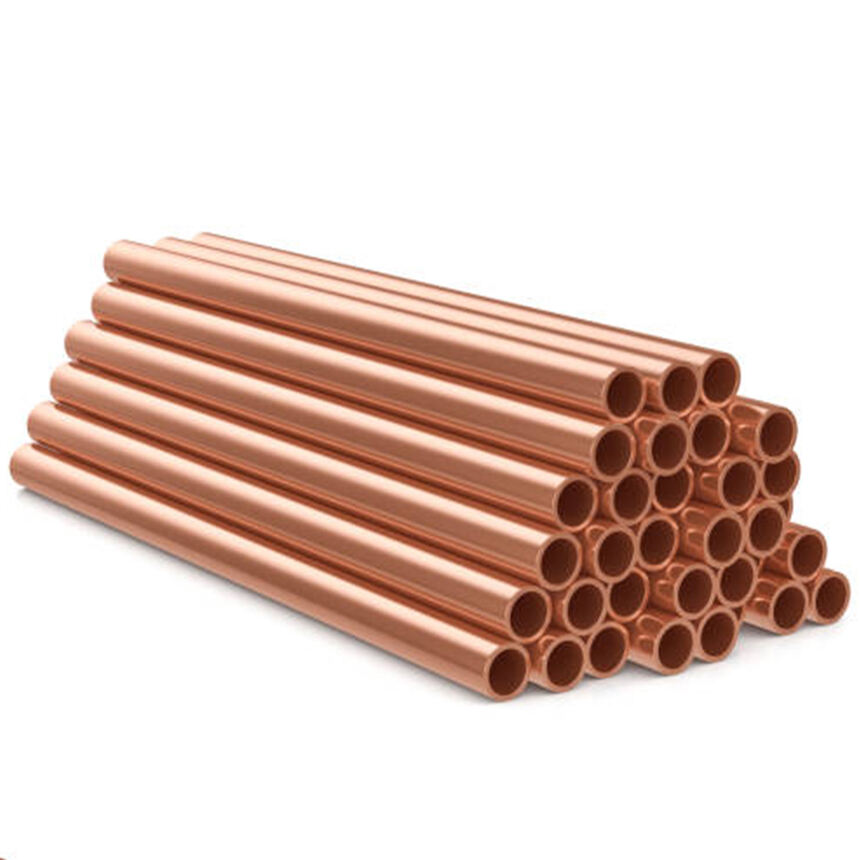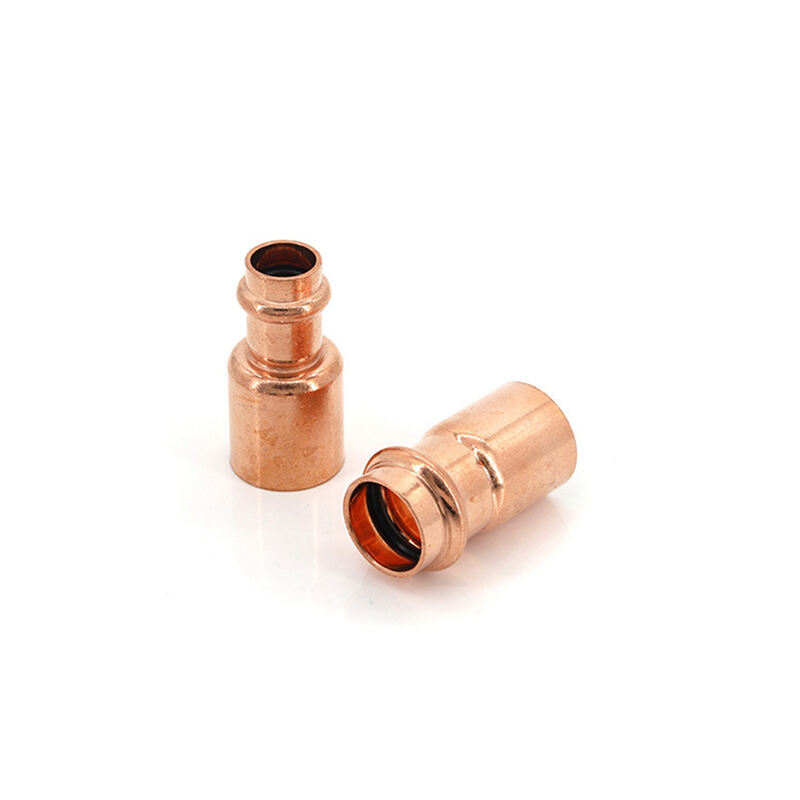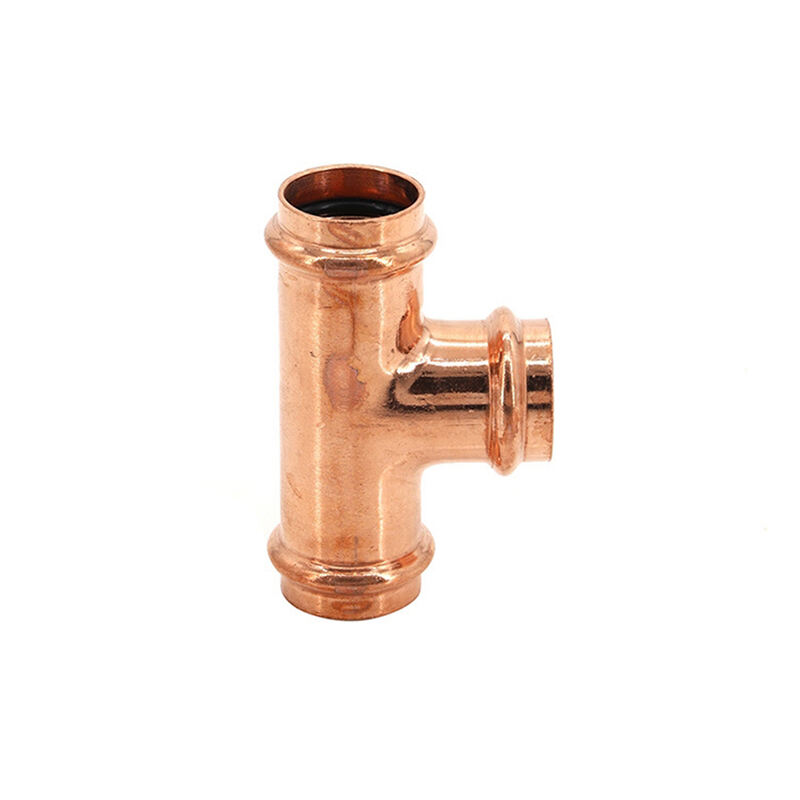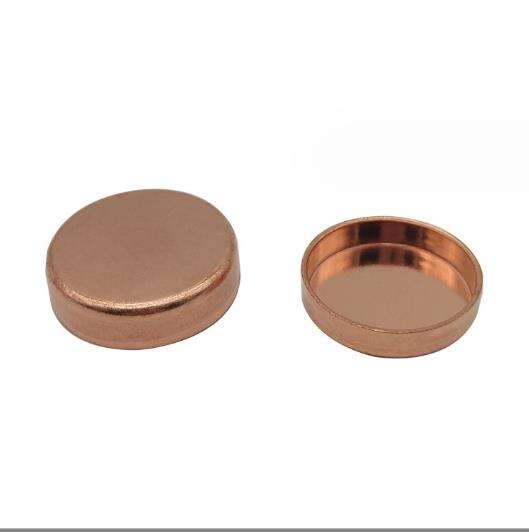Durability and Longevity of Copper Plumbing Systems
Superior Lifespan Compared to Alternative Materials
Copper pipes are renowned for their exceptional lifespan, lasting over 50 years, which significantly surpasses that of plastic alternatives typically ranging from 20 to 40 years. Statistics from the International Copper Association affirm that 70% of existing copper piping remains functional after 50 years of use, highlighting their remarkable durability. Several factors contribute to copper's longevity, including its resistance to corrosion and degradation over time. The natural properties of copper, such as its ability to form a protective layer against corrosion, ensure that it maintains structural integrity in plumbing systems for decades. This advantage not only enhances the lifespan but also reduces the need for frequent replacements, making copper a cost-effective choice for long-term plumbing solutions.
Resistance to Extreme Temperatures and Pressure
Copper pipes are engineered to withstand extreme temperatures ranging from -40°F to 200°F, making them suitable for diverse climatic conditions. Unlike plastic, copper does not become brittle at low temperatures, ensuring consistent and reliable performance throughout varying seasons. Its ability to endure high-pressure scenarios, up to 500 psi, further illustrates the robustness of copper compared to alternative materials. Brass fittings and copper pipe connectors complement copper's resilience, forming a comprehensive plumbing system that can manage demanding applications without compromising safety or efficiency. This resistance is essential for ensuring stable operation in both residential and commercial settings, where temperature fluctuations and pressure demands can be significant challenges.
Natural Antimicrobial Properties for Safer Water
Copper pipes are renowned for their natural antimicrobial properties, playing a crucial role in ensuring safer water supply systems. Studies published in the Journal of Environmental Health reveal that copper surfaces can eliminate 99.9% of bacteria within just two hours, demonstrating their effective capacity to combat microbial growth. This intrinsic feature of copper aids in maintaining a cleaner water supply, significantly reducing health risks linked to waterborne diseases. As more emphasis is placed on the quality and safety of drinking water, the antimicrobial characteristics of copper plumbing systems serve as a valuable asset in the fight against pathogens.
Protection Against Pipe Degradation and Leaks
Copper's inherent corrosion resistance greatly minimizes the risks of pipe degradation and subsequent leaks over time, offering dependable functionality for plumbing systems. Research supports that aging copper pipes exhibit notably lower corrosion rates compared to other materials, resulting in fewer repair needs over their lifespan. This durability not only ensures reliable water pressure and flow but also contributes to long-term cost savings by decreasing maintenance and repair frequency. Given these benefits, investing in copper plumbing is a prudent decision for both homeowners and commercial establishments seeking a robust and sustainable plumbing solution, effectively safeguarding their infrastructure from common piping issues.
Thermal Efficiency in Home Heating and Cooling
Optimizing HVAC Performance with Copper Pipe Connectors
The integration of copper fittings in HVAC systems significantly optimizes their performance by leveraging copper's excellent heat conductivity. Copper allows heating and cooling systems to operate more efficiently, ensuring that spaces are heated or cooled faster and with greater evenness, which leads to reduced energy consumption. Studies in the HVAC industry indicate that the use of copper pipe connectors not only boosts performance but also substantially decreases energy waste. These enhancements are critical for systems aiming to achieve higher energy efficiency levels, ultimately leading to cost savings in energy bills.
Energy Savings Through Superior Heat Transfer
When it comes to heat transfer, copper pipes offer a distinct advantage over plastic alternatives. Copper pipes can facilitate up to 25% faster heat transfer, directly affecting heating systems' energy efficiency and minimizing operational costs. The high thermal conductivity of copper ensures that boilers and heating systems work more effectively, further promoting energy savings. By incorporating copper plumbing into home heating infrastructure, homeowners can expect lower utility bills and an overall reduced carbon footprint. This transition not only supports financial savings but also aligns with sustainable environmental practices by decreasing greenhouse gas emissions associated with home heating and cooling processes.
Copper vs Plastic Pipes: Health and Safety Advantages
Eliminating Microplastic Contamination Risks
Copper pipes are a safer choice compared to plastic, primarily due to their ability to eliminate the risk of microplastic contamination, which is a significant issue with plastic piping systems. Studies have shown that microplastics can leach into water supplies from plastic pipes, posing health risks to consumers. Unlike plastics, copper does not degrade into microplastics, ensuring that water remains free from these harmful contaminants. Opting for copper piping therefore contributes to a safer and more reliable drinking water supply, making it a preferred option for those concerned about water purity and health.
Fire Resistance and Structural Integrity
Copper pipes offer superior fire resistance due to their high melting point, providing a safer option for plumbing systems compared to plastic pipes. In regions prone to wildfires or high temperatures, copper's structural integrity remains intact, offering protection that plastic counterparts cannot. This long-term stability and fire resistance provides homeowners peace of mind regarding the safety and durability of their plumbing infrastructure. Copper's robust nature not only protects against fire-related damage but also ensures the plumbing system maintains its integrity over time, benefiting areas prone to harsh conditions.
Sustainable Choice for Modern Water Infrastructure
100% Recyclability and Environmental Benefits
Copper pipes stand out in the plumbing industry for their unrivaled recyclability and minimal environmental impact. They can be recycled repeatedly without any loss of quality, making them a preferred option for eco-conscious builders. The recycling of copper is remarkably energy-efficient, consuming only 15% of the energy required to obtain new copper from raw ore. This significant reduction in energy consumption not only cuts down on greenhouse gas emissions but also helps preserve natural resources. By choosing recycled copper for modern infrastructure projects, stakeholders actively support sustainability and contribute to a reduction in global waste.
Reducing Waste Through Decades-Long Service Life
Copper pipes significantly minimize waste thanks to their impressive durability and extended service life. Unlike some other materials, copper pipes do not require frequent replacements, meaning that less waste is generated over time. A study shows that switching to copper plumbing can reduce maintenance costs by approximately 40%, a testament to its resilience and reliability. For homeowners and industries concerned with sustainability, choosing copper pipes translates into reduced material consumption and a commitment to a greener future. Such a choice underscores the long-term benefits of using durable materials that require fewer resources for maintenance and replacement.





